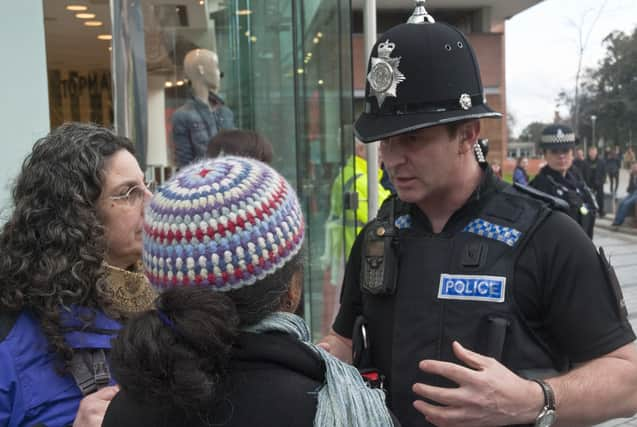This interactive map shows where and why Thames Valley used stop and search last year


Police will be given extra powers to carry out stop and search under new Government plans, the justice secretary Robert Buckland has said.
Whether it is a search for drugs, weapons or stolen property, there are many reasons why the police might stop and search a person.
Advertisement
Hide AdAdvertisement
Hide AdBut what are your rights currently if you are stopped by the police? And how often do officers use the power in Thames Valley?
Government figures show Thames Valley police used stop and search more than 19,000 times last year, with some areas seeing more incidents than others.
Here is what you need to know about the police power.
Stop and search in Thames Valley
Why are Thames Valley police using stop and search?
Data from Data.Police.UK reveals how many searches were undertaken in each police force area in England.
This interactive map will show you why and where Thames Valley police used stop and search in 2020.
Advertisement
Hide AdAdvertisement
Hide AdLoading....
When can the police stop and search you?
The police can stop and search a person if they have ‘reasonable grounds’ to do so.
This means if they suspect a person is carrying illegal drugs, a weapon, stolen property or something that could be used to commit a crime.
The police can search a person, their possessions or a vehicle they are travelling in.
A stop and search can sometimes be done without ‘reasonable grounds’ though.
Advertisement
Hide AdAdvertisement
Hide AdThis happens if the police suspect serious violence could take place, a person is carrying or has used a weapon or if the person is in a specific location or area.
A stop and search without ‘reasonable grounds’ needs to be approved by a senior police officer.
What are your rights?
People who are stopped and searched have rights.
Before searching a person a police officer must tell them their name and police station, what they expect to find, the reason they want to do the search and explain that the person can have a record of the search.
A stop and search will often involve the removal of a coat, jacket or gloves.
Advertisement
Hide AdAdvertisement
Hide AdBut if the police officer requests the removal of other clothes, including religious wear (a turban or veil for example), then this must be done out of public view.
If they request more than the removal of a jacket and gloves the officer must be the same sex as the person being searched.
A person should not be stopped and searched based on their age, sex, ethnic background or religion.
What changes will the Government make?
The Police, Crime, Sentencing and Courts Bill revealed in Parliament by the Government this week will aim to “equip the police with the powers and tools they need to protect themselves and the public”.
Advertisement
Hide AdAdvertisement
Hide AdThis will include measures to make it easier to stop and search those suspected of carrying knives.
Speaking on LBC, Mr Buckland said: "We know sadly that there are a number of people who, although they have been convicted for possession or use of an offensive weapon, go back into that cycle of offending.
"I think it's important to give police officers the power to search people where they've got information that that person has got a previous conviction for that sort of offence."